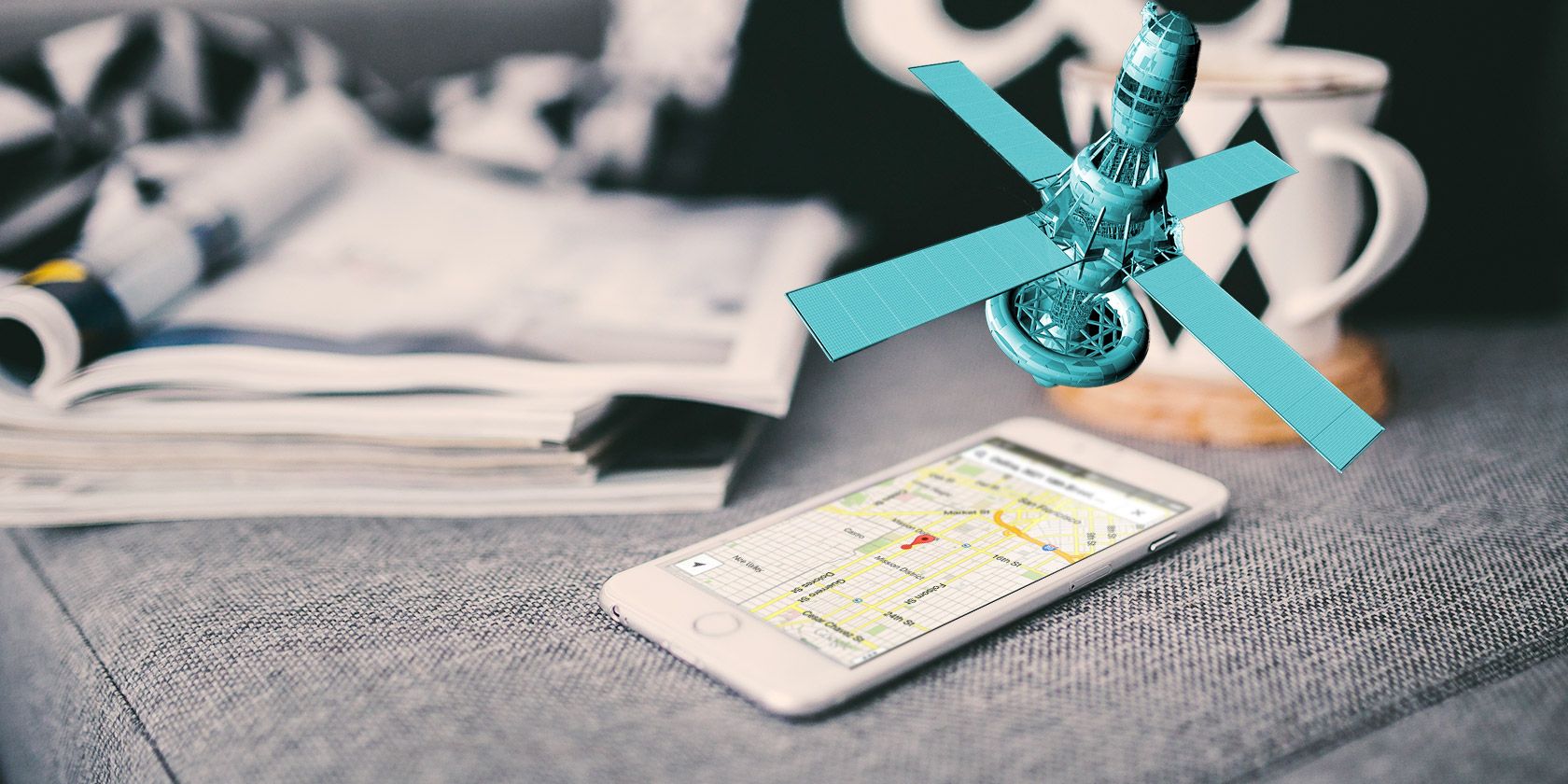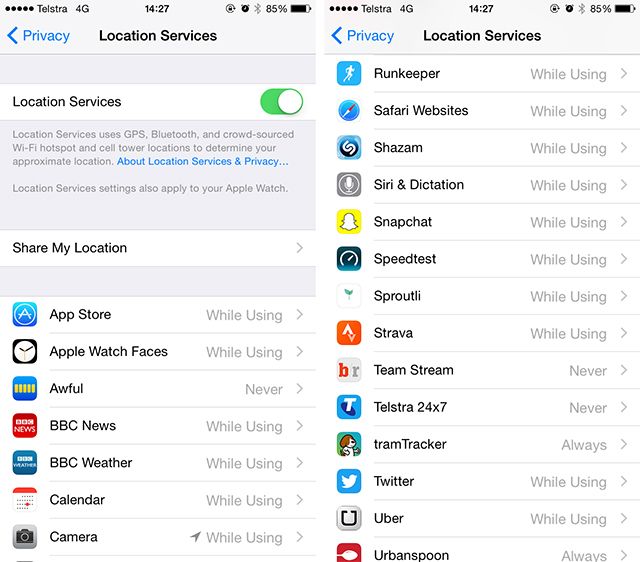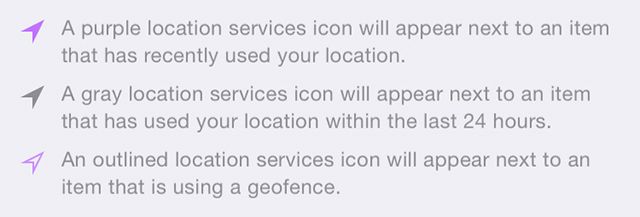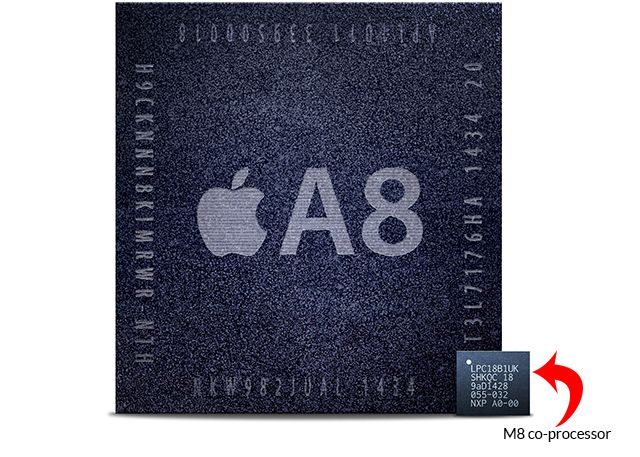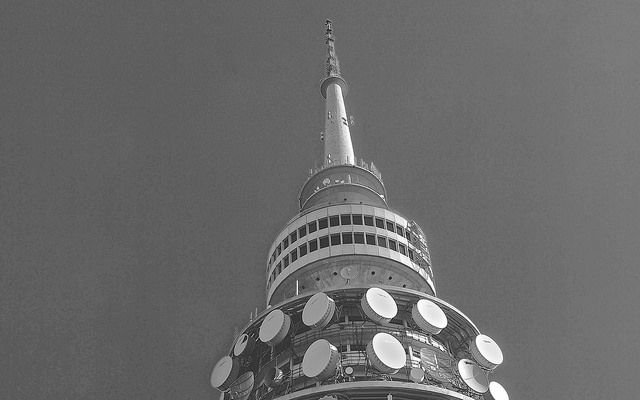Enough already — you're missing out on a huge chunk of your smartphone's functionality by turning off GPS. Despite this, the excuses for doing so continue to flood in.
Whether it's to conserve battery life or to stop the NSA tracking your every move, it's likely your reasons for crippling your device's ability to locate you aren't justified. So stop already.
Maps, Geo-Tagging, and Tinder
The GPS functionality that comes with every iPhone forms a large part of what is frequently referred to as the "core smartphone experience." To demonstrate the point, here are just a few of the apps I have installed on my iPhone that use my GPS co-ordinates almost every single day:
- Google Maps — for finding cycle routes, not getting lost and estimating distances and travel times.
- Evernote — for tagging notes by location.
- Messages — for sharing my location with contacts and finding people.
- Strava, RunKeeper and other sports apps — for tracking cycling and other physical activity.
- Camera, Instagram and other photo apps — for geotagging images, finding nearby images and tagging locations.
- Happy Cow, Urban Spoon and other discovery apps — for finding places to eat and things to do.
- Yahoo Weather — for accurate hyper-local weather, sunrise and moon phase; handy when travelling.
- PTV, a local public transport app — for quickly finding the next tram or train out of here.
- Commbank, a banking app — for locating nearby ATMs and branches.
- Guardian and other news apps — for providing news local to your location, handy when travelling.
- Safari — occasionally when websites request it, to make browsing faster and easier.
These are only the apps I use, there are many more out there that absolutely rely on GPS to perform their task — off the top of my head both Tinder and AirBnB spring to mind. Sick of living without all this convenience? Then you should probably...
Control What Accesses GPS Instead
Allowing every app you have installed on your device access to your location is a bad idea, particularly if you have been disabling GPS outright for battery reasons. Guess what? If you manage which apps can access GPS properly, battery life shouldn't be negatively impacted with everyday use.
Head to Settings > Privacy > Location Services for a comprehensive list of apps that have requested your location and the privileges you have granted them. If you've had GPS off till now, the entire list will be disallowed so you'll need to make exceptions.
This menu also employs several symbols to denote GPS activity, by way of a pointer. A purple pointer indicates an app that has recently used your location, a gray pointer means the app has used your location within the last 24 hours and an outline of a pointer indicates an app currently using a geo-fence.
If you see any grey or purple indicators you don't like the look of, revoke that app's privileges. Note that any apps set to "While Using" will only use GPS when you're actively using the app (a good example is the iOS Camera app, which geotags images as they are taken).
GPS Technology Has Come a Long Way
The GPS in your new iPhone isn't like the GPS chip in your aging iPhone 4S. While GPS technology has been mainstream for many years now, the iPhone 5s represented somewhat of a breakthrough in positioning technology thanks to the M7 co-processor.
The M7 (and the current generation's M8) is a co-processor designed with efficiency in mind that uses very little battery life. It tracks movement, so in addition to doing things like telling you how far you've walked today, it can buffer location data over short distances. This reduces the frequency that your iPhone wakes up the main CPU to ask the GPS where you currently are.
The GPS chip in your iPhone doesn't actually use very much power, but waking your CPU up to register your location does. This is how the motion co-processor helps save power, particularly when your phone is asleep in your pocket.
Paranoid About Being Tracked?
Some users turn off GPS because they are paranoid about being tracked — by apps, by malware, by stalkers, by law enforcement and government agencies. The truth of the matter is that turning off GPS isn't going to stop your location and identity being revealed by agencies who really want to find out where you are.
In March of this year the US Supreme Court ruled that the use of GPS trackers represents a form of search, and thus requires a warrant. So far smartphones have yet to be used in the same manner — only dedicated trackers (like those fitted to vehicles) have been used, but the technology is essentially identical.
Simply having a mobile phone---even a dumb phone---provides authorities with the means to track an iPhone, or any phone for that matter. Triangulation can be used to locate you using three cell towers (for example, if you're lost) and as proof that you were in a specific location at a given time in court. Even if you don't have a GPS chip, you can't beat the cell towers if your phone is on.
If you really are a secret agent on the run then you'll want to avoid leaving a cellular footprint or paper trail at all. In Australia (and many other countries), you need a passport or valid form of ID to sign up for a mobile pre-paid plan or contract. When I visited South Africa, I experienced the same policy (and new SIMs expire after six months inactivity). In many countries, your name is quite literally tied to your phone number.
In the USA, use of a pre-paid "burner" phone on an MVNO goes some way toward obfuscating your identity, but even these are not immune to location via triangulation and other tracking techniques. Switching burners and SIM cards frequently may do the trick, but that's not viable for those of us who enjoy using our smartphones.
If you really are concerned about your boss or a stalker tracking you, you need to make sure that no spy software has been installed on your iPhone (and Android users should ensure they're malware-free). iPhone users should also be aware that their location can be shared indefinitely from the Messages app (which has plenty of legitimate uses), which anyone could do given access to your unlocked phone.
Enable GPS Now
You can enable GPS on your iPhone (and iPad) under Settings > Privacy > Location Services. You can also control which apps can access your location information from this menu.
Still not convinced? I'd love to hear your reasons why — maybe you're using an old iPhone? Maybe you only use your phone occasionally?
Image credits: Canberra, 2013 (Greg Wass)

